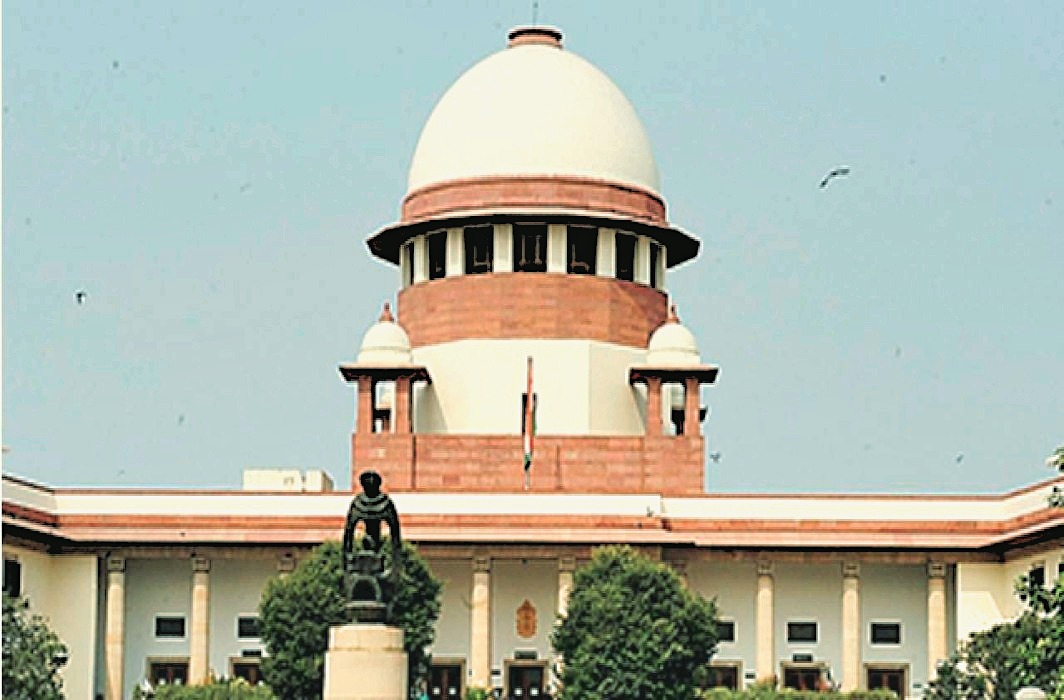InCivil Appeal No. 7210 of 2011 -SC-Supreme Court affirms principle of ‘no third trial on facts’ for Second Appellate Courts; Overturns Karnataka High Court judgment in land dispute case
Justice Bela M. Trivedi & Justice Dipankar Datta [20-11-2023]

Read Order: P. Kishore Kumar V. Vittal K. Patkar
Chahat Varma
New Delhi, November 21, 2023: The Supreme Court has upheld the principle that second appellate courts should not engage in a ‘third trial on facts’ or act as ‘one more dice in the gamble’. The ApexCourt's decision, which overturned a Karnataka High Court judgment in a land dispute case, reaffirmed the limited scope of second appeals and emphasized the importance of adhering to established legal principles.
In summary, the plaintiff's claim was based on the land devolving upon their predecessor-in-interest through a Family Settlement Deed. The Mysore (Personal & Miscellaneous) Inam Abolition Act, 1954 came into force on 15th March, 1955, leading to the cessation of rights vested in the Inamdars and their transfer to the state. The Act allowed for applications to register as occupants of the land. The plaintiff's vendor applied and allegedly succeeded in obtaining occupancy rights in respect of 15 acres of land, as per the Commissioner's order dated 25th November, 1958. A subsequent dispute arose when the defendant purchased a portion of the same land and obtained occupancy rights through the Land Tribunal in 1982. Both parties executed sale deeds for their respective portions of the land, leading to a lawsuit filed by the plaintiff against the defendant for declaration of title and permanent injunction. The Trial Court initially decreed in favour of the plaintiff, but the first appellate court overturned this decision based on the absence of evidence supporting the plaintiff's claim. The Karnataka High Court, in the subsequent appeal, interpreted the Commissioner's order in favour of the plaintiff, primarily based on the exhibited revenue records, and upheld the decree passed by the Trial Court.
The division bench, comprising of Justice Bela M. Trivedi and Justice Dipankar Datta, referred to the decision rendered in Nazir Mohamed vs. J. Kamala [LQ/SC/2020/623], and discussed the criteria for a substantial question of law in Section 100 of the CPC. It highlighted that a second appeal cannot be entertained where no substantial question of law was raised in the lower courts and emphasized that a substantial question of law should have a material bearing on the decision of the case, not be covered by specific provisions of law or settled legal principles, and involve a debatable legal issue. The bench reiterated that the jurisdiction is limited, and interference should not occur unless the appeal involves a substantial question of law, distinct from a mere question of law.
The bench scrutinized the sale deeds, and emphasized that revenue records are not documents of title. It ruled that the defendant's sale deeds, supported by the Commissioner's order, outweighed the plaintiff's reliance on revenue documents.
The bench opined that the plaintiff's contention, asserting the establishment of title through the record of rights by a preponderance of probabilities, was not tenable. Notably, the plaintiff failed to produce any document of title concerning the suit property. In a title dispute, the bench observed that merely highlighting deficiencies in the defendant's title was inadequate. As the plaintiff had initiated the suit for declaration, the burden of proof was on the plaintiff to reasonably establish the probability of possessing a superior title, a task the plaintiff unequivocally failed to accomplish.
The bench determined that as the plaintiff had only presented revenue documents, primarily of a fiscal nature, the case lacked a high degree of probability. The plaintiff's attempt to establish title by submitting records of rights for several years was deemed insufficient. In this context, such records could not counter the probative value of the occupancy rights provided by the defendant.
The bench held that the High Court, being a court of law in second appeal, should not have intervened with the extensive findings of facts made by the first appellate court. Citing the case of Gurdev Kaur vs. Kaki [LQ/SC/2006/344], the bench emphasized that the decision of the first appellate court, not violating established legal principles, should not have been disturbed.
Thus, the bench ruled that the High Court erred by overturning the factual findings established by the first appellate court. Additionally, the High Court's decision to adopt the Trial Court's approach of interpreting the Commissioner's order based on exhibited revenue records was deemed another error. The bench said that the High Court should have endeavoured to harmoniously interpret the Commissioner's order with the Act's provisions, aligning it with the law. The failure to do so rendered the High Court's decision indefensible.
Consequently, the bench held that the High Court's judgment and order rested on an erroneous approach, contradicting established law. It was observed that the plaintiff had failed to meet the burden of proof mandated by the law.
The impugned judgment and decree were set aside, the civil appeal was allowed, and the Trial Court's decree was also overturned, resulting in the dismissal of the plaintiff's suit.
Sign up for our weekly newsletter to stay up to date on our product, events featured blog, special offer and all of the exciting things that take place here at Legitquest.




Add a Comment